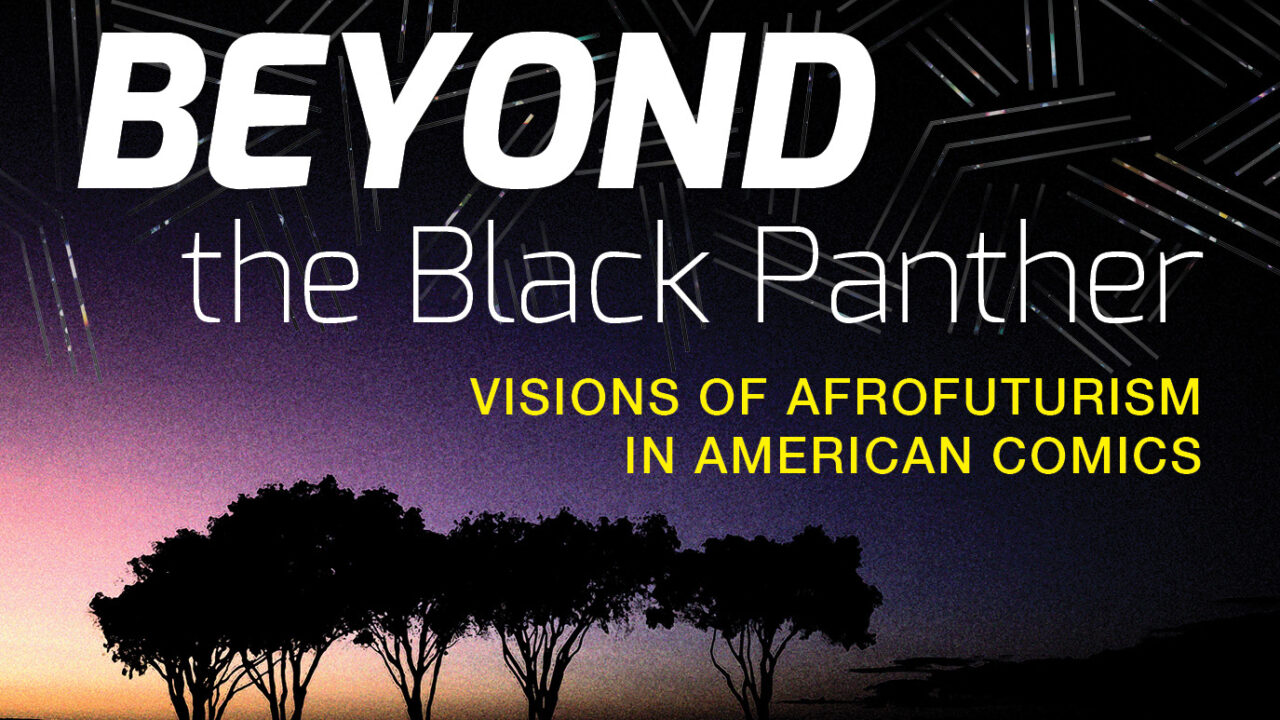Details
Date: February 1, 2021 - August 13, 2022Location
MSU Museum - Ground FloorEast Lansing, MI 48824
Most people are familiar with Marvel’s Black Panther, and some are aware of its connections to Afrofuturism, a framework to understand how the black imagination manifests visions of freedom. This virtual exhibition will explore how themes such as aesthetics, Black feminism, and community, common to Afrofuturism, shape contemporary Black comics. Beyond the Black Panther gives us a view of stories inspired by African folklore such as Is’nana the Were-Spider, science fiction adventures centered on a black female hero such as Matty’s Rocket, or vital social commentary about police violence such as I am Alfonso Jones. The MSU Museum encourages visitors to engage with this exciting topic and expand their understanding of the black speculative tradition in comics. Public programs will include talks by comic book authors.
MSU Faculty and K-12 Educators: Please contact the Museum Education Team for more information.
About the Exhibition
Beyond the Black Panther: Visions of Afrofuturism in American Comics includes art pieces, interpretation, and activities designed to allow visitors to explore Afrofuturism through comics by Black creators.
Exhibition Introduction
At its heart, Afrofuturism calls our attention to how a black imaginary has “other stories to tell about culture, technology, and things to come.” A black vision of the future must contend with systematic oppression to imagine a better tomorrow. When the term “Afrofuturism” was coined by cultural critic and writer Mark Dery in 1994 (twenty-eight years after the creation of Marvel Comics’ Black Panther). He argued that this vision of freedom and hope percolated in “black-written” and “black-drawn” comic books. Dery’s observation highlighted how black imagination inspires change. While Marvel’s Black Panther captures one element of this history, this exhibit explores the rich legacy of comics created by black people. Black creators use comics to imagine our world in ways that embrace difference and celebrate freedom.
Main Sections

Metaphysics: Afrofuturism centers spiritual belief grounded in African cultural tradition.
Aesthetics: Afrofuturism elevates forms, shapes, and textures linked to Africa.
Science: Afrofuturism recovers the legacy of African learning and innovation.
Gender: Afrofuturism centers women’s worth, celebrates female strength, and elevates women.
Community: Afrofuturism emphasizes collective freedom and supports liberation for people of African heritage throughout the world.
Learn More
LibGuides and Syllabi
- Afrofuturism LibGuide. Bethune-Cookman University
- Afrofuturism Syllabus. ZORA! Festival Academic Conference 2020-2021
- Graphic Possibilities: A Comics Research Guide
Books and Articles
- Anderson, Reynaldo. “Afrofuturism 2.0 & The Black Speculative Arts Movement: Notes on a Manifesto.” Obsidian: Literature in the African Diaspora, vol. 42, no. 1–2, Spring-Winter 2016, pp. 230-271.
- Art Institute of Chicago. Benin Kings and Rituals: Court Arts from Nigeria, 2007.
- Asante, Emmanuel. Akan Proverbs: Their Origins, Meanings, & Symbolical Representations in Ghanaian Material Cultural Heritage. Accra: Asempa Publications, 2002.
- Black Panther Blog Series at Black Perspectives
- Chambliss, Julian C. “The Soul of Black Comics: An Interview with John Jennings.” Black Perspectives: The Blog of African American Intellectual History Society (AAIHS), October 14, 2017.
- Chambliss, Julian C. “A Different Nation: Continuing a Legacy of Decolonization in Black Panther.” Ages of the Black Panther: Essays on the King of Wakanda in Comic Books, edited by Joseph J. Darowski, McFarland and Company, 2020, pp. 204-220.
- Kofoworola, Ziky. Yorùbá Names, Cosmology, Worldviews, and Dramatic Expressions. Nigeria: International Institute of Theatre, 2015.
- Ross, Doran, and Agbenyega Adedze. Wrapped in Pride: Ghanaian Kente and African American Identity. Los Angeles: UCLA Fowler Museum, 1998.
- Schildfraut, Enid, and Henry John Drewal. Dynasty & Divinity: Ife Art in Ancient Nigeria. New York: Museum for African Art, 2009.
- Thompson, Robert Farris. Flash of the Spirit: African & Afro-American Art & Philosophy. First Vintage Books, Random House, Inc.: New York, 1984.
- Womack, Ytasha L. Afrofuturism: The World of Black Sci-Fi and Fantasy Culture. Lawrence Hill Books, 2013.
- Yaszek, Lisa. “Afrofuturism, Science Fiction, and the History of the Future,” Socialism and Democracy 20, no. 3 (November 2006): 41–60.
Videos and Podcasts
- “Every Tongue Got to Confess Podcast.” Based on Voices of the Black Imaginary (https://d.lib.msu.edu/vbi), Michigan State University Libraries. Podcast.
- LaFleur, Ingrid. Visual Aesthetics of Afrofuturism. 2011. Video.
- LaFleur, Ingrid. What does the Afrofuture Say? with Kevin Sipp. 2020. Video.
- The Last Angel of History. Dir. John Akomfrah. Icarus Films, 2016. Video. [MSU authorized users link]
- Nelson, Alondra. Afrofuturism Defined. 2010. Video.
Featured Creators
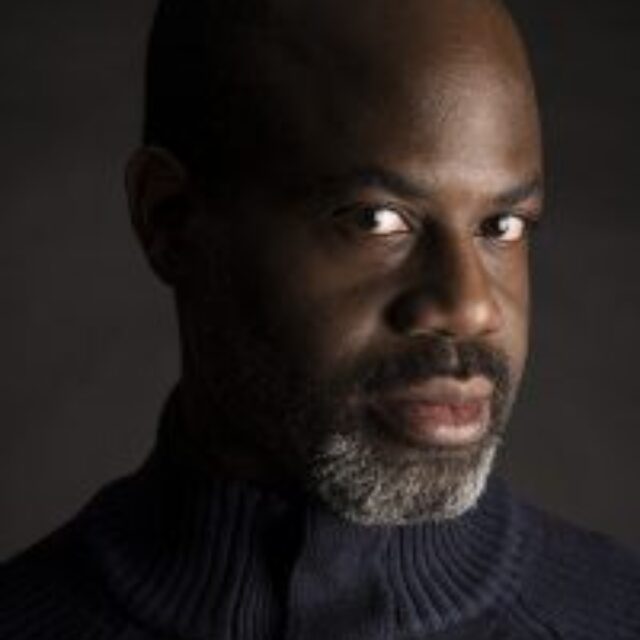
JIBA MOLEI ANDERSON
Jiba Molei Anderson is a veteran of the creative industries working as a Visual Communicator, Writer and Educator teaching courses in multimedia at Chicago State University and the Computer Systems Institute. Anderson is also CEO and Creative Director for Griot Enterprises, a publishing company / visual communication studio. An expert in print design, publishing and branding, Anderson has worked as a graphic designer and art director for companies such as Onyx Path Publishing, The Smithsonian National Museum of African Art, Universal Music Group and serves as Creative Director for independent music label Beaty Boy Records.
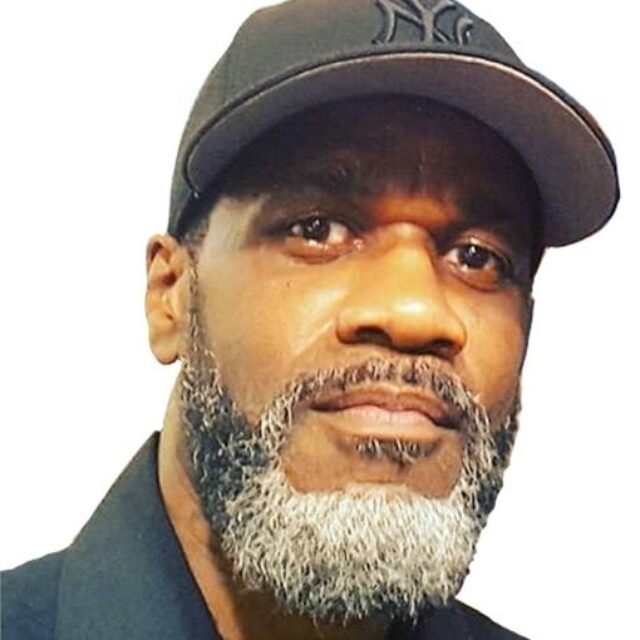
DAWUD ANYABWILE
Dawud Anyabwile is an Emmy Award Winning and two time Glyph Comics award winning Illustrator and comic artist based in Atlanta, GA. Born by the name of David Sims and raised in Philadelphia, PA where he developed his love for art, culture and music appreciation, as a young person, Dawud and his brothers explored all kinds of creative forms of expression including stop motion animation, film making and story development. He has received numerous awards and accolades throughout his career including the Key to Kansas City for Outstanding Service to Children. A Lifetime Achievement Award from the East Coast Black Age of Comics Convention and in addition he was nominated for the Will Eisner Award – Best Artist category at the San Diego Comic Con in 1992 for his work on the critically acclaimed comic series, BROTHERMAN: Dictator of Discipline.
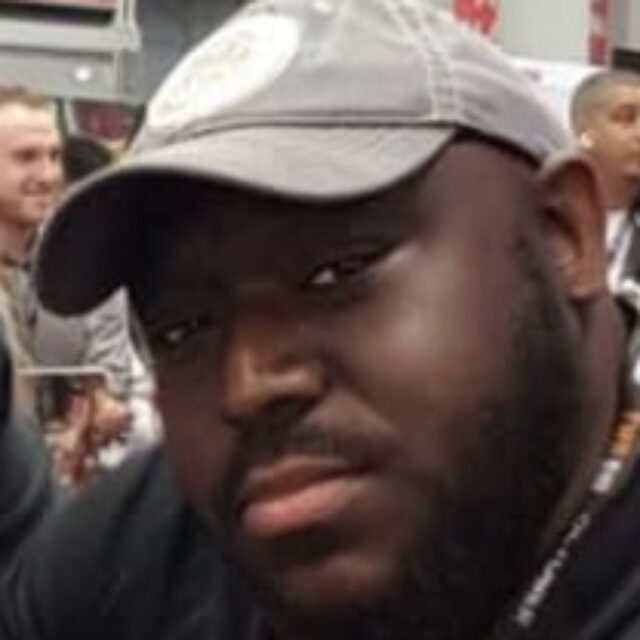
CHUCK BROWN
Chuck Brown is an Eisner and Ringo winning writer. He has written The Punisher, Wolverine, and Black Panther comics for Marvel. He is the writer and creator of On the Stump and Co-Writer and Co-Creator of Bitter Root for Image Comics. Bitter Root is being adapted as a live action film by Legendary Pictures. Ryan Coogler (Black Panther), Zinzi Evans, and Sev Ohanian will produce the film.

GREG ANDERSON ELYSÉE
Greg Anderson Elysée is a Brooklyn, NY born Haitian-American writer, educator, filmmaker, and model. He is known for the comic Is’nana: The Were-Spider, a multi award winning series that includes 2018 Fan Award, Rising Star, and Best Male Character, and 2019 Best Writer and Story of the Year (Glyph Awards). Is’nana is based on Anansi the trickster god of stories from West African and Caribbean mythology and folklore.
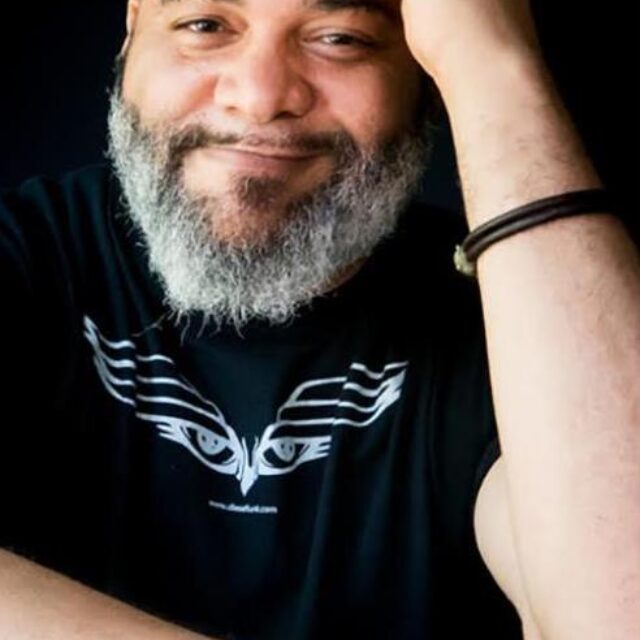
TIM FIELDER
“Tim Fielder is an Illustrator, concept designer, cartoonist, and animator born in Tupelo, Mississippi, and raised in Clarksdale, Mississippi. He has a lifelong love of Visual Afrofutuism, Pulp entertainment, and action films. He holds other Afrofuturists such as Samuel R Delany, Octavia Butler, Pedro Bell, and Overton Lloyd as major influences. Tim has worked over the years in the storyboarding, film visual development, gaming, comics, and animation industries for clients as varied as Marvel Comics (‘Dr Dre: Man With A Cold Cold Heart’), The Village Voice, Tri-Star Pictures (‘The Mothership Connection’), to Ubisoft Entertainment (‘Batman: Vengeance). He is known for his graphic novel Matty’s Rocket and his TEDx Talk and BLACK ENTERPRISE interview on the subject of Afrofuturism. His projects, Matty’s Rocket, INFINITUM, Black Metropolis and High John Conqueror are graphic stories from his company Dieselfunk Studios.” (From timfielder.com)
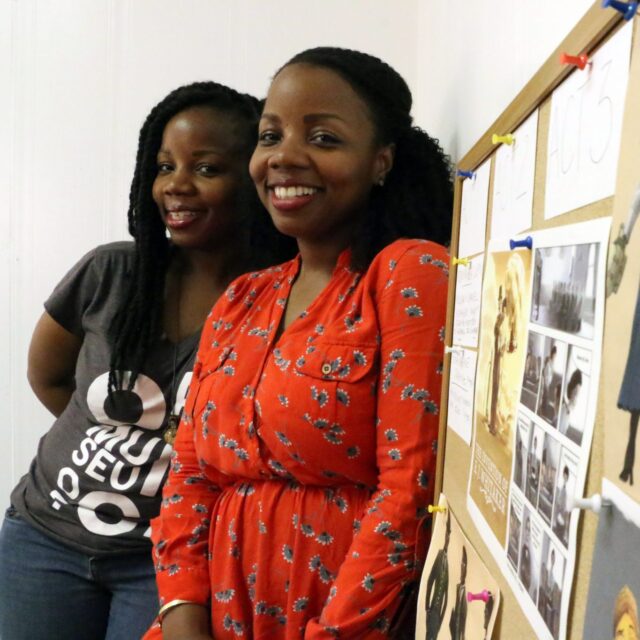
THE GIBBS SISTERS (SHAWNEÉ GIBBS & SHAWNELLE GIBBS)
The Gibbs Sisters (Shawneé Gibbs & Shawnelle Gibbs) are an award-winning writing team from Oakland, California with backgrounds in television, animation, and comics. The twin sisters and collaborators have created a brand of quirky, fun projects that have entertained audiences across the globe. They are the creators of the spirited adventure series, The Invention of E.J. Whitaker, a diverse re-imagining of the early 20th century, and the comedic YA time-travel comic book series, Fashion Forward. Their debut YA graphic novel, Ghost Roast, published by Houghton Mifflin Harcourt / Versify will be released in Spring of 2022. The sisters are staff writers for Warner Bros. Animation and have written upcoming series for Dreamworks Animation / Netflix. Shawneé and Shawnelle are members of Writers Guild of America, West, The Academy of Television Arts & Sciences, the Organization of Black Screenwriters and Women in Animation.

JOHN JENNINGS
John Jennings is Professor of Media and Cultural Studies and a Cooperating Faculty Member in the Department of Creative Writing at the University of California, Riverside. His work centers around intersectional narratives regarding identity politics and popular media. Jennings is co-editor of the Eisner Award-winning essay collection The Blacker the Ink: Constructions of Black Identity in Comics and Sequential Art and co-founder/organizer of The Schomburg Center’s Black Comic Book Festival in Harlem. He is co-founder and organizer of the MLK NorCal’s Black Comix Arts Festival in San Francisco and also SOL-CON: The Brown and Black Comix Expo at the Ohio State University. Jennings sits on the editorial advisory boards for The Black Scholar and the new Ohio State Press imprint New Suns: Race, Gender and Sexuality in the Speculative. He is a former Nasir Jones Hiphop Fellow at the Hutchins Center, Harvard University.
The Blacker the Ink: Constructions of Black Identity in Comics and Sequential Art
Blue Hand Mojo
The Kindred: A Graphic Novel Adaptation
Black Kirby
Uncaged Exhibit
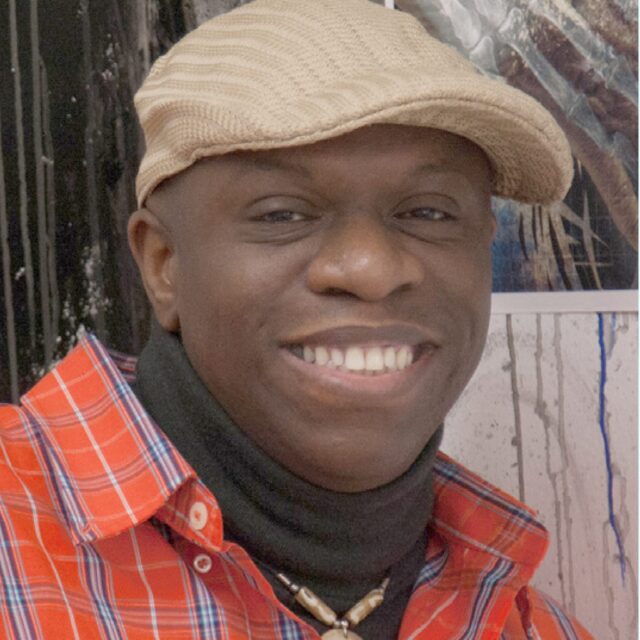
STACEY ROBINSON
Stacey Robinson is an assistant professor of Graphic Design at the University of Illinois at Urbana-Champaign. A former Arthur Schomburg fellow, he completed his Masters of Fine Art at the University at Buffalo. Robinson’s art speculates futures where Black people are free from colonial influences. His exhibition ‘Binary ConScience’ explores W. E. B. Du Bois’s “double consciousness” as a Black cultural adaptation and a means of colonial survival. Along with John Jennings, he is part of the collaborative duo ‘Black Kirby,’ which explores Afro Speculative existence via the aesthetic of Jack Kirby. He directed “Unveiling Visions: The Alchemy of the Black Imagination” for the Schomburg Center for Research in Black Culture in Harlem. He was also a part of the exhibition “Invisible Ink: Black Independent Comix” at the University of Tennessee, and the “Beyond the Frame: African American Comic Book Artists” presentation at the Flint Institute of Arts.

JEROME WALFORD
Jerome Walford is an accomplished illustrator and graphic designer. In 2008 he began rewriting an old concept he had for a graphic novel series. The idea found new life in his first graphic novel series “Nowhere Man” and he launched Forward Comix to be a platform for publishing his creator-owned work. Jerome currently continues his work in advertising while working on further installments to the “Nowhere Man” series and other projects.
